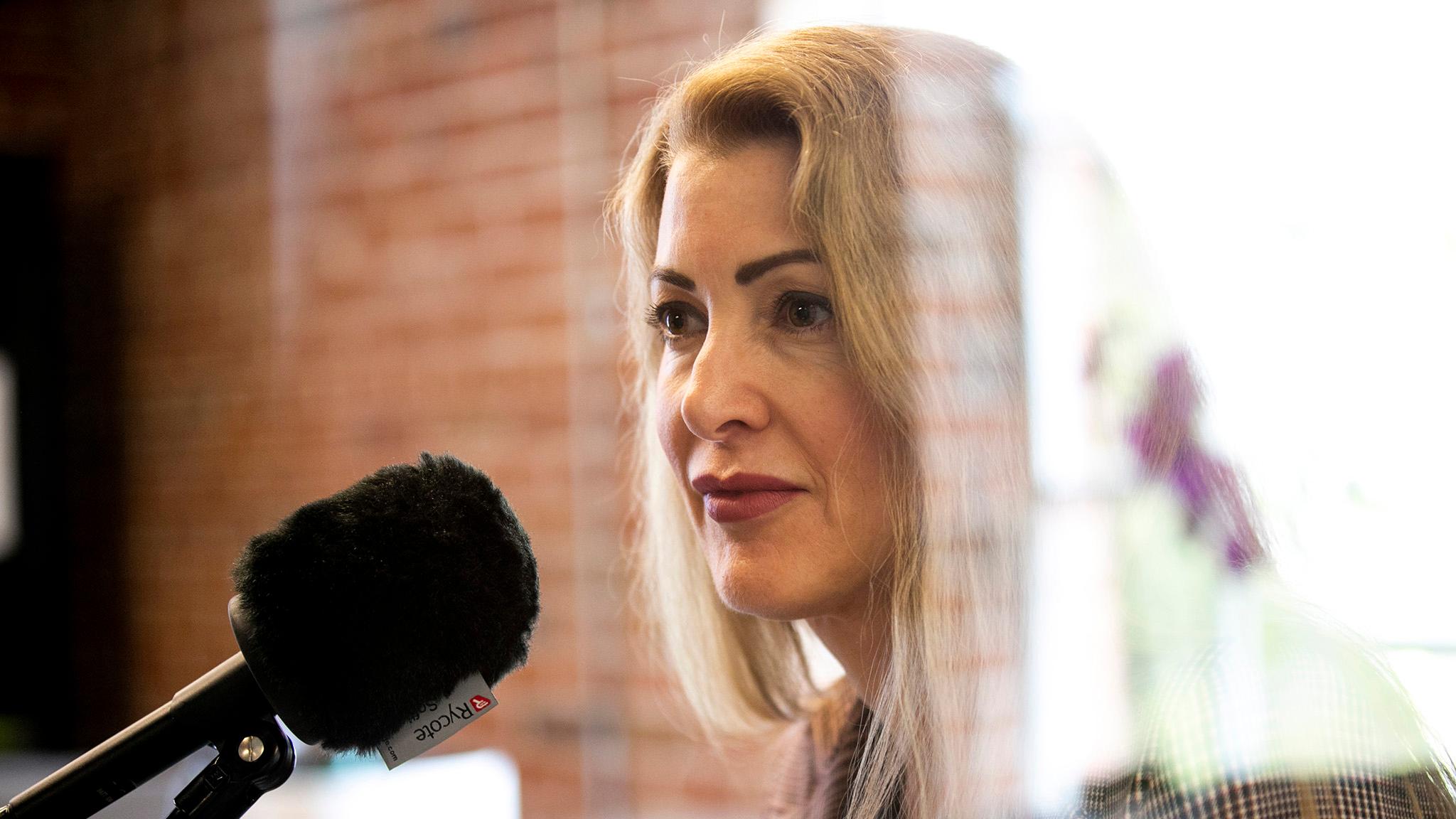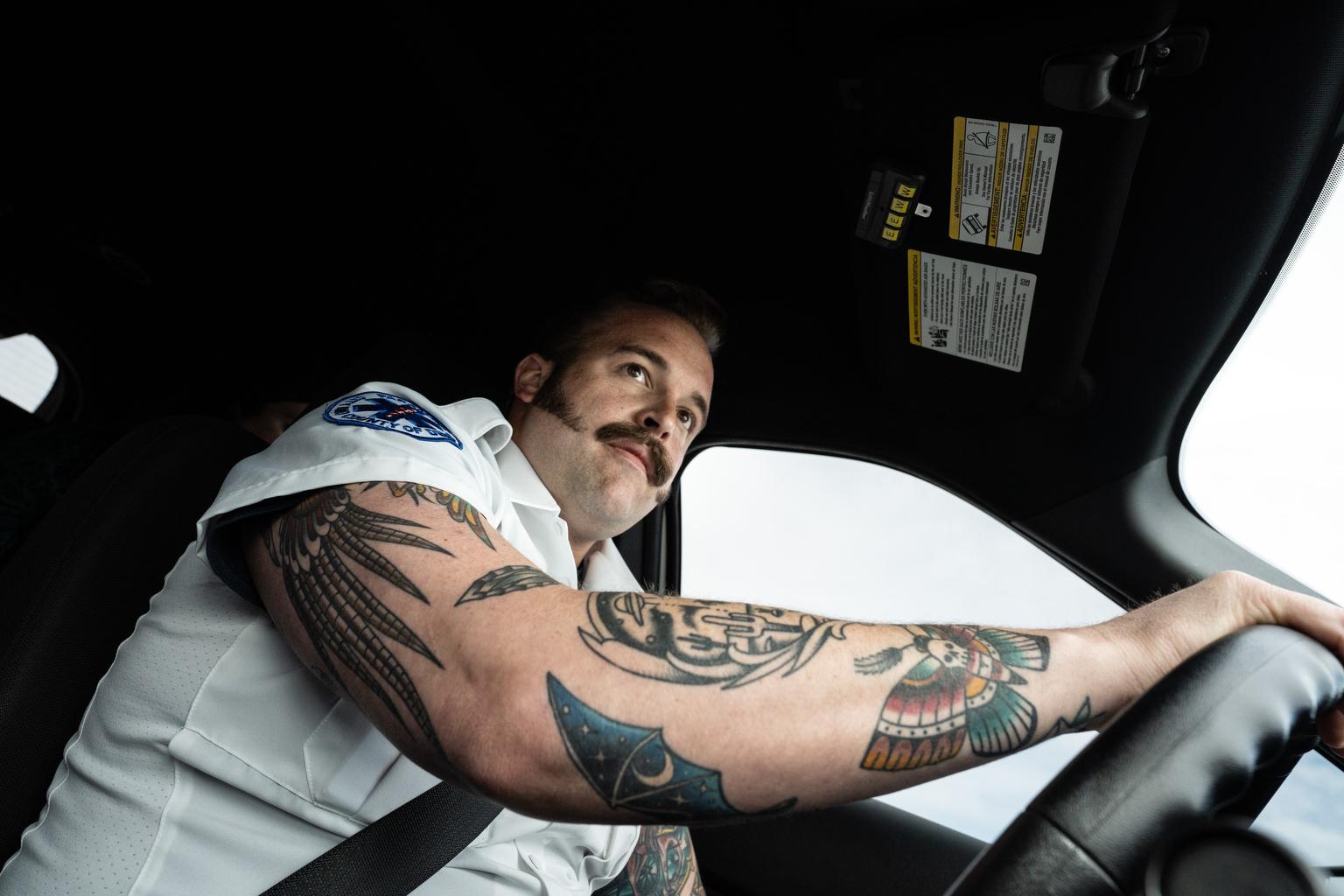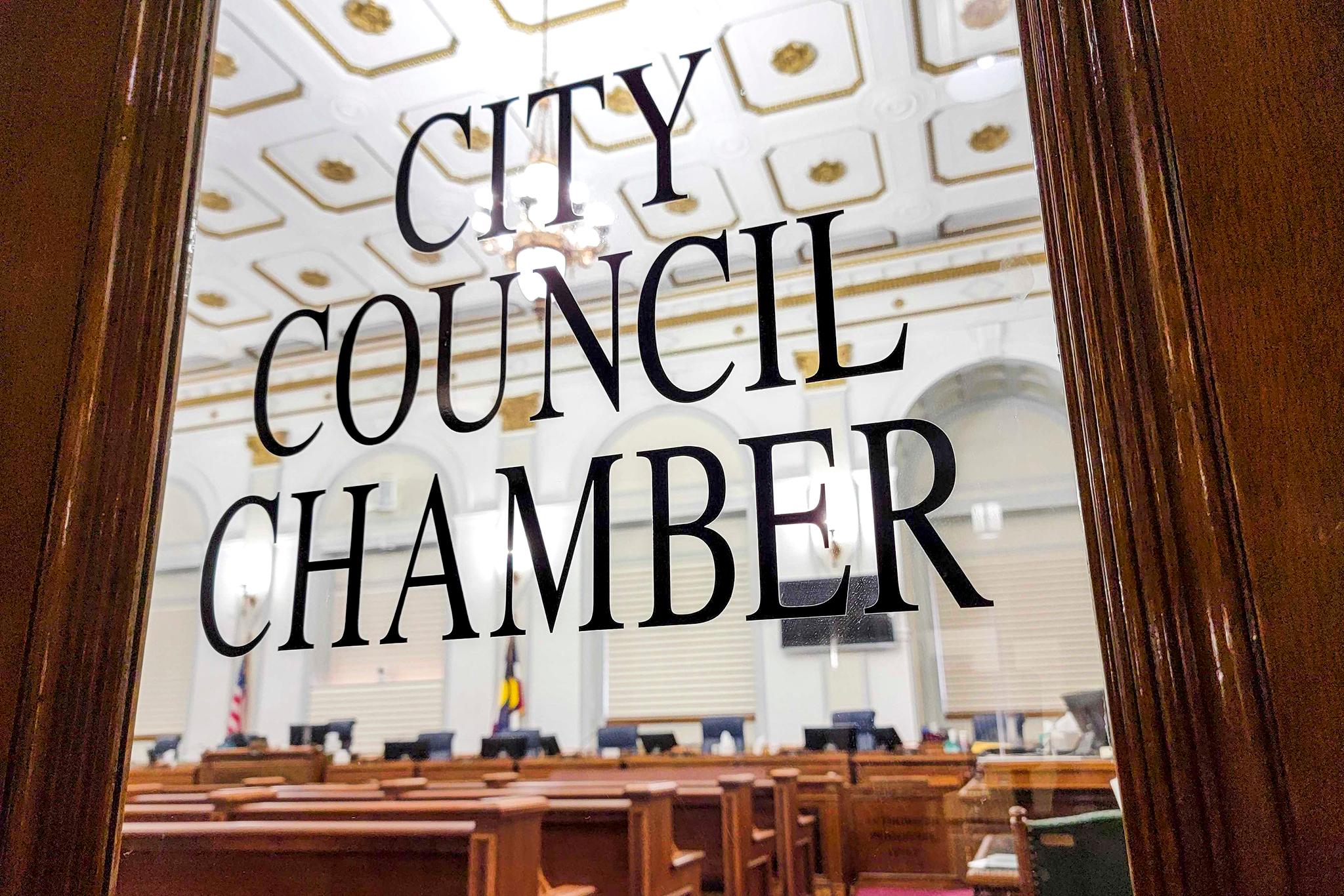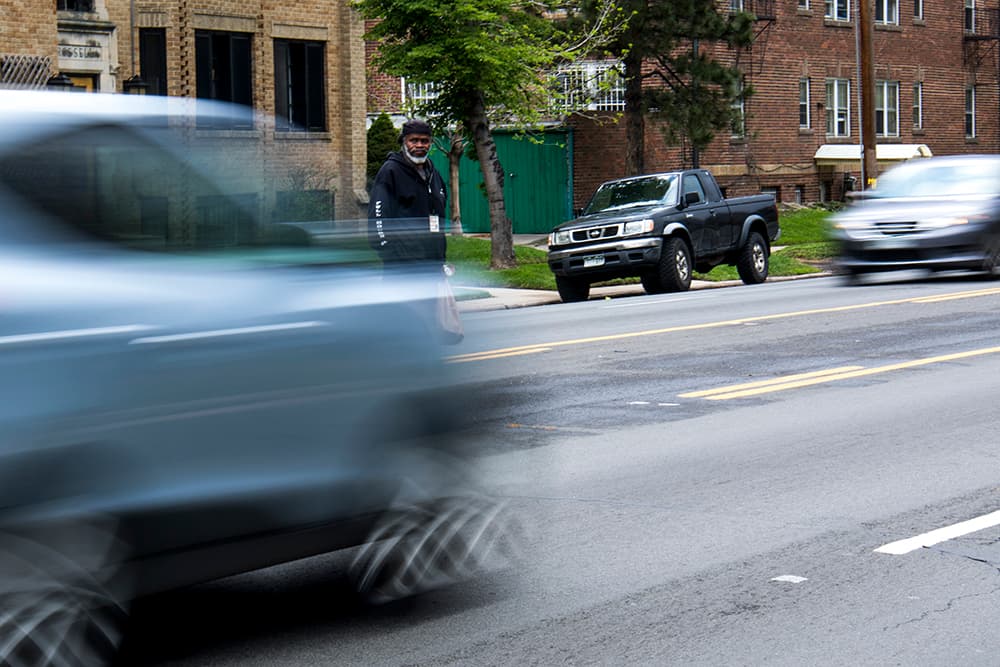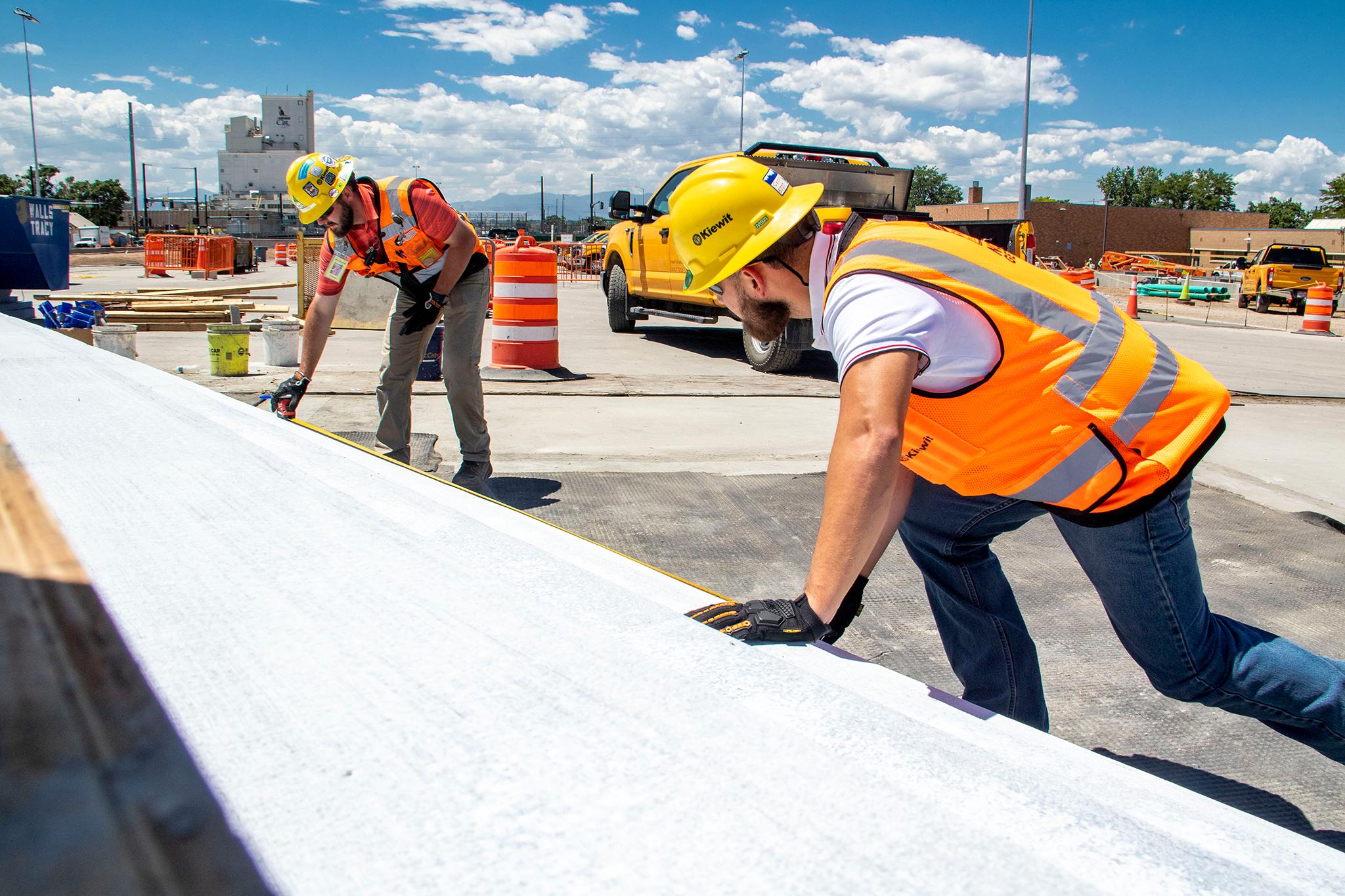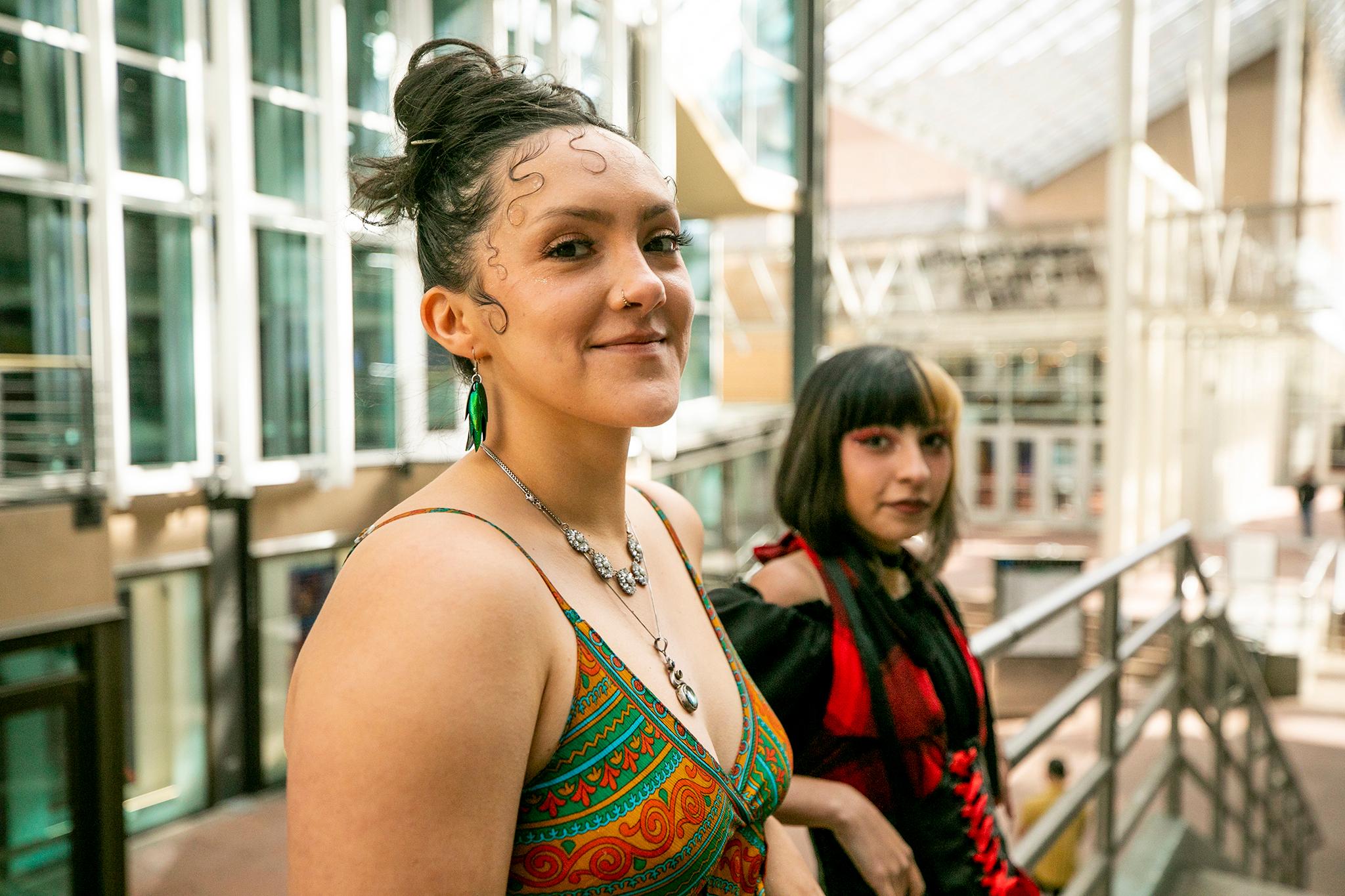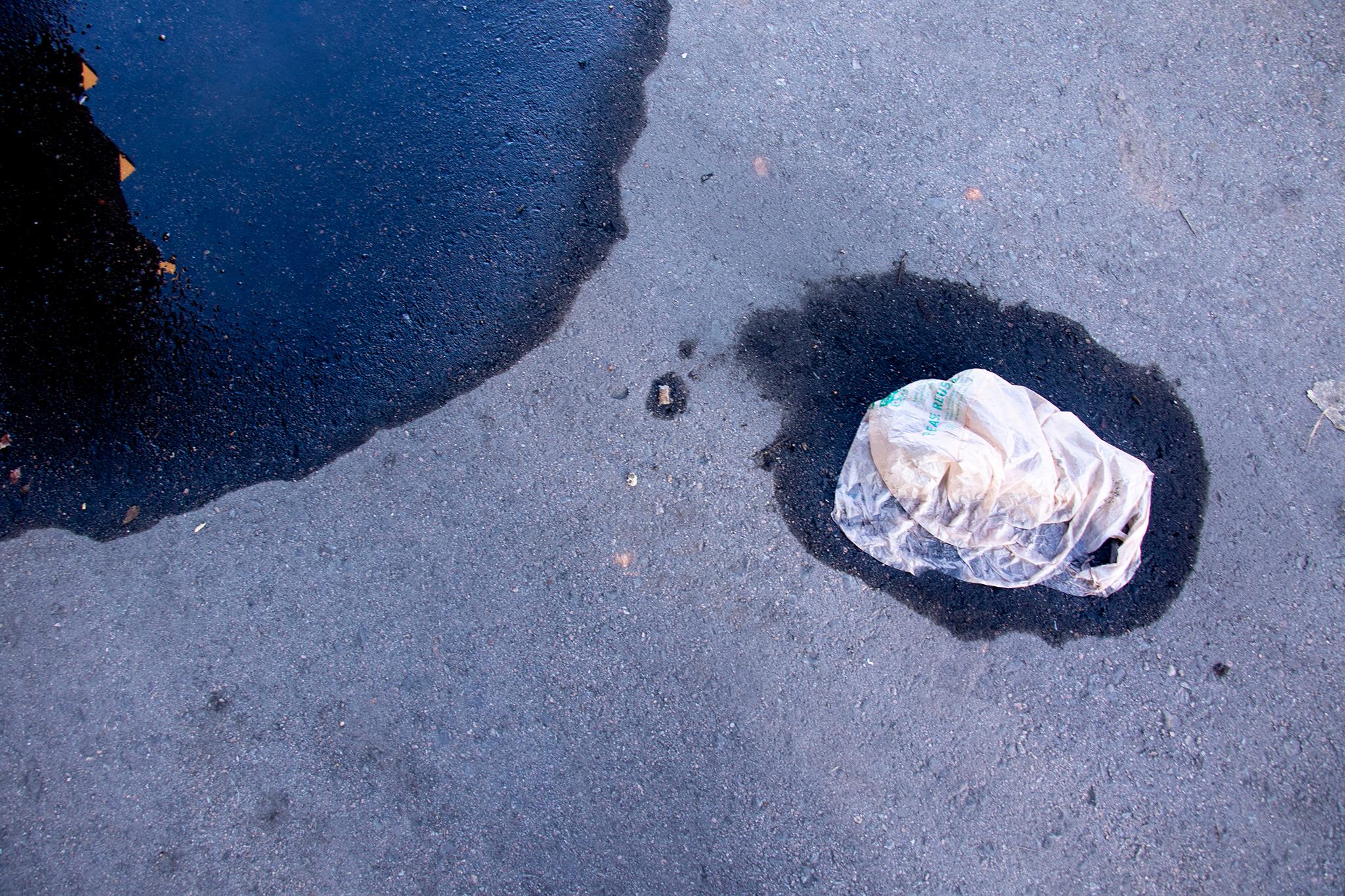Auraria Campus leadership hopes to remain in conversation with antiwar protesters on campus and police are "a last resort," according to Auraria Higher Education Center leaders in one of the first interviews with media since the arrival of the protest camp.
But next steps for the campus are unclear. Police arrested over 40 protesters on Friday who were in violation of the campus’ no-camping policy — half of which were students, according to Colleen Walker, CEO of the Auraria Higher Education Center. But the encampment has only grown since then as students protest Israel's military actions in Gaza. Israel has killed more than 34,000 Palestinians in the Gaza Strip, according to the Health Ministry there, since the start of the war launched after Hamas killed more than 1,400 Israelis and took hostage 200 others in October.
Walker stressed that AHEC and its campuses are committed to free speech, however maintained their stance that the protesters are violating long-standing anti-camping policies.

“We've enforced the camping ban for 20 years, and it is to keep the campus environment safe and secure,” she said. “That really is kind of the order of priority, being safe and secure, upholding the mission and having operations be business as usual, and then freedom of speech. There is a hierarchy to that.”
Walker cited a canceled fundraiser on Tivoli quad as an example of the protest disrupting campus operations, along with complaints leadership has received about the encampment.
“The perception of not being safe is every bit as important as truly physically not being safe,” Walker said.
Organizers have said that the protests are peaceful and that bringing police creates safety concerns. Students said they have appointed their own marshals to deescalate potential unsafe situations.
Campus officials and protesters also contend a familiar point from the last several years of demonstrations in Denver: Officials say they believe national organizers are coming in to agitate alongside students, while local organizers say they're the ones calling the shots.
Some protests nationwide have resulted in campus closures — Walker said she and other leaders are committed to ensuring that won’t happen as students are preparing for finals and graduation.
What isn’t clear is when police would return to the encampment, if at all. Officials wouldn’t provide a clear answer on whether they would call police back to the site of the protest for breaking its encampment policy, but emphasized a dedication to open dialogue with protesters.
“We will never not lean in and we will never not be in dialogue with our students,” Walker said. “That's where we're even doubling down even more.
“I think the use of police is always a last resort, and our police department is fully committed to the safety and security of this campus 24/7, and they do an outstanding job,” she added.
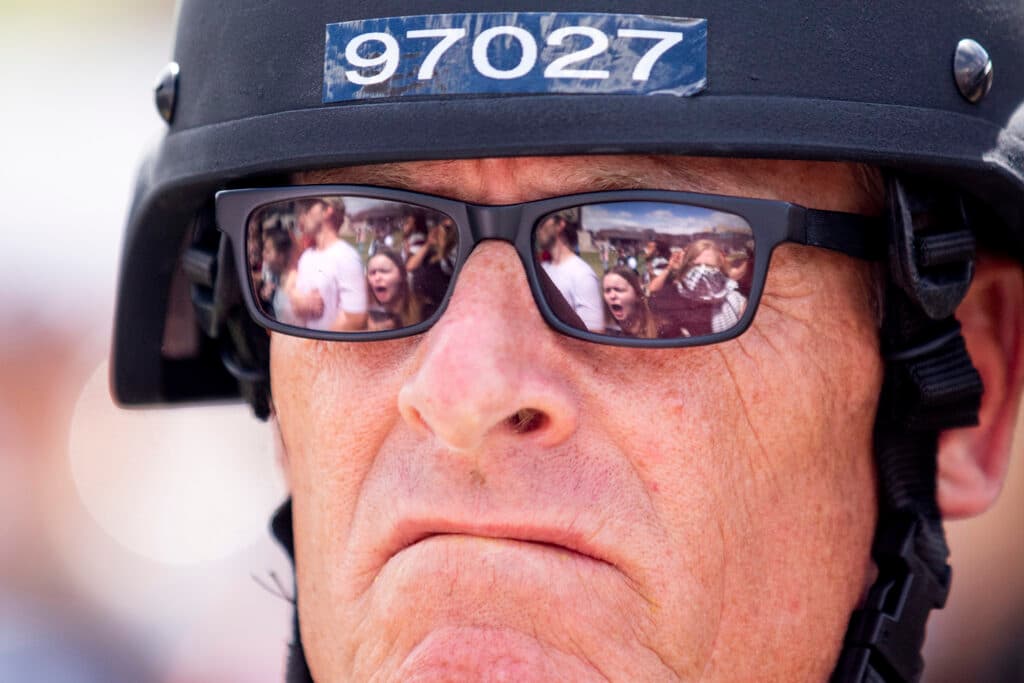
Student protesters alleged the over 40 arrested last week were subject to police brutality. Many told Denverite that they were mentally preparing for police to return to the encampment sometime this week.
“Our goal is to not arrest anyone,” AHEC Chief of Staff Shaneis Malouff said. “That is not our goal here. Our goal is to make sure that it stays safe.”
Denverite’s interview with Walker comes after student protest leaders and leaders from Auraria’s three campuses met for over an hour Tuesday.
Organizers expressed frustration with a perceived lack of haste coming from university leaders in a press conference following the meeting. In a statement Tuesday, Auraria Campus said that many of the organizers’ demands fall outside leadership’s control, and are in the hands of the elected Board of Regents.
At the meeting, campus leadership offered students sun shades, water and the ability to continue protesting on the quad during the day. Organizers refused, instead asking leadership to end the encampment policy. They said they would only stop camping after commitments to divestment from Israeli companies.
In a recording of the meeting reviewed by Denverite, campus leadership said they would ask the Board of Regents, the governing body that would make the call on divestment at CU, about the potential for a meeting with organizers. At other campuses like Brown University and Northwestern University, leadership and protesters came to compromises on demands and protests.
“The way that we work is not full of demands and acceptance,” said CU Chancellor Michelle Marks in the meeting in response to the divestment demands. “Something we talk a lot about in college is starting with conversation and understanding each other and then seeing what we can do together.”
The organizers pressed the urgency of their demands as Israel continues to wage war in Gaza.
“Every single day we just lose so many lives," said one of the organizers in the meeting. "Why does that not matter? Why is that not turning to action?”
During a press conference Wednesday, organizers unveiled new demands aimed at the Metropolitan State University of Denver.
The demands are nearly identical to the ones protesters have made of the University of Colorado system, which were first introduced last week when the students began the protest. They include a statement condemning the Israeli government, an end to study abroad programs to Israel, divestment from Israeli companies and terminating contracts and relationships with companies that operate in Israel.

“We would also like financial disclosure in order for us to be aware of where our money is going because as students we are not fully, we don't have access to that information and we are paying a lot of tuition to be here and we should know where our money's going,” said Lucia Feast, an MSU Denver student.
The protesters have called for MSU Denver President Janine Davidson to meet with students by next Wednesday to discuss the implementation of those demands.
Protests have spread elsewhere across the state, though Auraria remains the largest encampment.
Auraria students erected the antiwar camp last Thursday, joining a number of similar protests at college campuses that spread nationwide after police arrested protesters at Columbia University.
A day later, Denver and Auraria campus police officers moved to break up the camp, arresting over 40 people in the process. An Auraria campus spokesperson said about half of those arrested were students enrolled at an Auraria university.
The camp has since been reestablished and police haven’t returned. Protesters have established a central tent where they keep food, water and supplies, as well as a medic tent and portapotties.

On Monday, following a student and faculty walkout organized by protesters, the Community College of Denver announced it would hold remote classes until Sunday, saying “freedom of expression should not come at the expense of respect for one another and must adhere to campus policies.” Community college officials have denied Denverite’s request for further comment.
Auraria is home to the largest college protest in Colorado, but momentum has been growing at other campuses. Colorado State University student activists announced it would erect a camp Wednesday, just days after they delivered demands to CSU’s leadership. Unlike Auraria, the camp will be torn down by sundown and reestablished in the morning.
In Boulder, pro-Palestine student protesters staged a “die-in” at CU’s University Memorial Center, which was met with pro-Israel counter-protesters.
The University of Colorado Board of Regents, the elected, partisan body that oversees all four CU campuses, has been meeting behind closed doors in executive sessions, where no public action is taken. Agendas show the Regents are discussing legal advice on protests.
“We are balancing efforts to ensure students, faculty, staff and community members have the ability to participate in education and business operations without disruption, and we are dedicated to protecting free speech and protests that align with our policies,” the system said in a statement.
